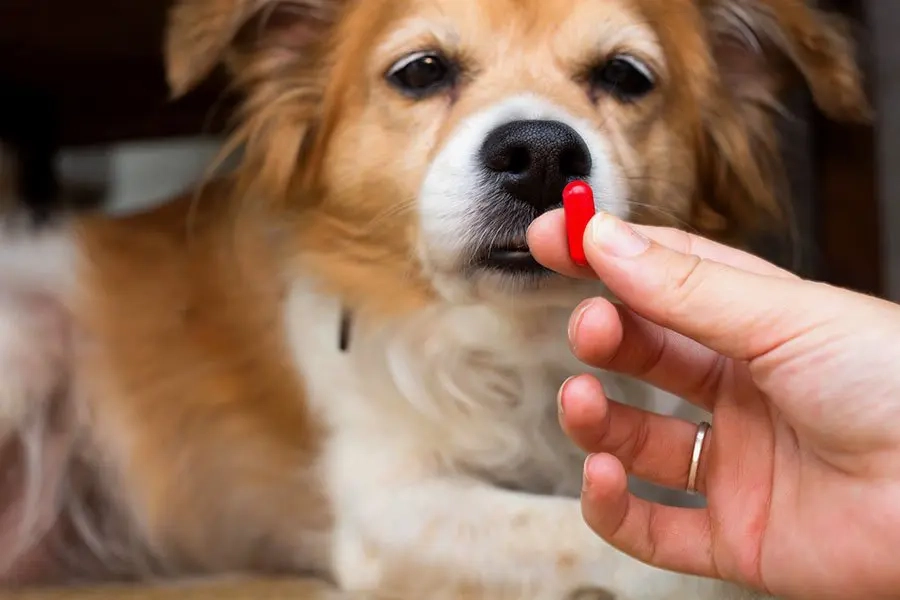Proper pet medication administration is essential for veterinary business owners. It not only guarantees effective treatment for pets but also reinforces client trust. This trust can lead to repeat business and referrals, which are critical for growth. However, administering medication is not without its challenges. Understanding these complexities can provide an edge in a competitive market. Exploring effective strategies can reveal how to navigate these hurdles successfully.
Key Takeaways
- Proper medication administration enhances pet health, leading to faster recovery and fewer complications, which boosts overall satisfaction among pet owners.
- Satisfied clients are more likely to trust and remain loyal to veterinary providers, resulting in repeat business and long-term relationships.
- Positive word-of-mouth from happy clients attracts new customers, contributing to business growth and a stronger market presence.
- A solid reputation for effective pet care fosters confidence in the services provided, differentiating the business from competitors.
- Ongoing education and communication about medication practices enhance the credibility of the business, reinforcing trust with pet owners.
Understanding the Importance of Pet Medication Administration
Understanding the importance of proper pet medication administration is essential for both the well-being of the animals and the peace of mind of their owners. It not only guarantees that pets receive the necessary treatments for their health conditions but also fosters a trusting relationship between pets and their caregivers. Knowing how to give pet medication correctly can alleviate the stress that both pets and owners may experience during treatment. This understanding helps owners feel more confident in their ability to care for their pets, ultimately enhancing their emotional bond. By prioritizing proper medication administration, owners contribute to their pets’ recovery and overall happiness, creating a supportive environment for their furry companions and themselves.
Key Techniques on How to Give Pet Medication
Proper medication administration is a skill that can greatly enhance the health and well-being of pets. Business owners should adopt key techniques on how to give pet medication effectively. First, it is crucial to read the medication instructions carefully and prepare the dose accurately. Using treats or food can facilitate the process; hiding pills in a small amount of peanut butter or cheese often works well. For liquid medications, utilizing a syringe can help guarantee the correct dosage is delivered directly into the pet’s mouth. Additionally, creating a calm environment reduces stress for both the pet and the owner. Patience and positive reinforcement, such as gentle praise, can foster trust and cooperation, making future administrations easier and more successful.
Benefits of Proper Medication for Pet Health and Business Reputation
When pet medication is administered correctly, it not only enhances the health and recovery of animals but also positively influences the reputation of businesses that provide veterinary care. Proper medication guarantees that pets experience fewer side effects and a quicker recovery, fostering trust among pet owners. As pets thrive, owners feel more connected to their veterinary providers, leading to increased loyalty. Additionally, businesses that prioritize accurate medication administration are often seen as more professional and empathetic, attracting new clients through positive word-of-mouth. This trust is essential in a competitive market, where a solid reputation can lead to sustained growth. Ultimately, understanding how to give pet medication effectively benefits both animal well-being and the business’s standing in the community.

Common Challenges in Administering Pet Medications
How can pet owners guarantee their furry companions receive necessary medications without undue stress? Many face common challenges in administering pet medications, including resistance from pets, difficulty in measuring doses, and the complexities of timing. Pets may instinctively resist taking pills or liquids, creating a stressful environment for both parties. Additionally, ensuring accurate dosage can be intimidating, especially with varying sizes and formulations. Business owners providing pet care services must be aware that client pets may have unique needs, requiring tailored approaches for effective medication administration. Understanding these challenges is essential for fostering a supportive atmosphere, as it not only enhances pet health but also strengthens the bond between pet owners and their beloved animals. Knowing how to give pet medication effectively is vital for success.
Best Practices for Business Owners in Managing Pet Health Care
Understanding the nuances of pet health care is essential for business owners in the pet services industry, as it directly impacts the well-being of their clients’ animals. Implementing best practices in managing pet health care can elevate service standards and foster client trust. First, business owners should prioritize ongoing education about common medications and their administration, including how to give pet medication effectively. Establishing clear communication with pet owners about medication schedules and potential side effects enhances transparency. Additionally, creating a supportive environment where clients feel comfortable discussing their concerns can strengthen relationships. Finally, collaborating with veterinarians ensures that the latest health protocols are followed, guaranteeing that pets receive the best care possible.
Frequently Asked Questions
What Types of Pet Medications Are Commonly Prescribed?
Commonly prescribed pet medications include antibiotics for infections, anti-inflammatory drugs for pain relief, flea and tick preventatives, and heartworm medications. These treatments guarantee the health and well-being of pets, fostering strong bonds between animals and owners.
How Can I Track Medication Schedules for Multiple Pets?
Tracking medication schedules for multiple pets can be effectively managed through digital apps, charts, or calendars. Consistent reminders and organized records foster a sense of responsibility, ensuring all pets receive timely and accurate medication doses.
Are There Alternatives to Oral Medications for Pets?
Alternatives to oral medications for pets include topical treatments, injections, and transdermal patches. These methods can enhance compliance and reduce stress, offering more options for pet owners seeking effective ways to manage their pets’ health.
How Do I Handle a Pet That Refuses Medication?
When a pet refuses medication, owners can try disguising it in food, using a syringe for liquid forms, or employing positive reinforcement techniques. Patience and understanding are essential in ensuring the pet’s comfort and cooperation.
What Should I Do if a Pet Misses a Dose?
If a pet misses a dose, the owner should administer it as soon as possible unless it’s close to the next scheduled dose. In such cases, they should skip the missed dose and consult a veterinarian.
Conclusion
In summary, effective pet medication administration is essential for veterinary business owners, as it directly impacts both pet health and client satisfaction. By mastering key techniques and overcoming common challenges, practitioners can enhance their reputation and foster loyalty among pet owners. This commitment to excellence not only improves recovery outcomes for pets but also positions the business favorably in a competitive market, ultimately driving growth and ensuring a compassionate approach to veterinary care.
You May Also Like To Read:





